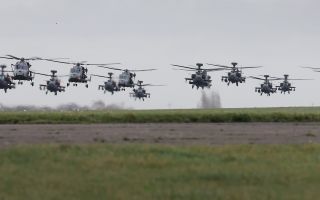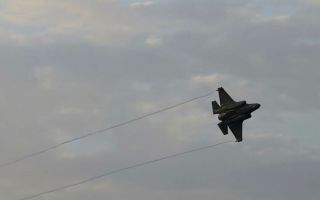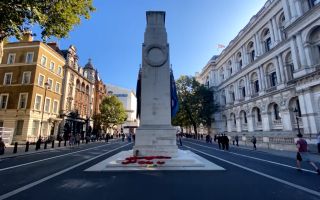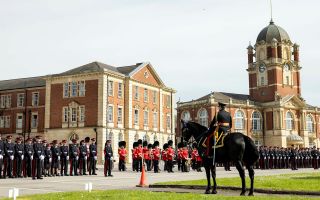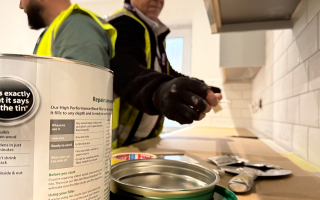Tri-Service
Comment: Do We Really Need The UN?
Do we really need the United Nations? Or as some say, if there was no UN would we have to invent it?
It was founded 70 years ago this week on the 24th of October 1945, just 89 days after the United States dropped two nuclear bombs over Japan - the final act in the most horrific war of all time.
The United Nation's task, set out in 1945, has never changed: To fix the problems of a world that knew there was more to come.
Here at 760 United Nations Plaza on the bank of the East River few of the thousands who work at UN headquarters would say the original objective of “ peace and security; the protection and promotion of human rights; and human development“ has been achieved.
The UN was the great ambition born from the failed League of Nations set up in 1920 with a purpose of disarmament, collective security and ending disputes by arbitration and not military means and so prevent a second world war. WWII happened. The League of Nations had failed.
Here was a time of butchered democracies, redrawn boundaries and global societies, and economies bewildered and damned by the events of the previous five years. None believed a new institution was the fixit from recovery, while many of the principles fought for were immediately threatened by the creeping Cold War.
The greatest hope was for a forum in which everyone could be heard. For all its weaknesses the UN is the only place where ambitions for a better world can be laid out and frailties exposed.
The too often unworthy experiences of failure may be counted in post-1945 war zones. Yet recovery from failure, even partially, may constitute some form of success if not victory. Sixty three global peace-keeping operations since 1945 (currently 16 plus 12 political missions across five continents) give a statistical value to the determination of the UN to bring about something more than a truce. Plus there's the fact that the UN manages to get some form of military monitoring to protect such fragile agreements.
More from Forces.tv - Comment: Why We Shouldn't Snigger At North Korea
But here is the temper of the images and reputations of failure levelled at the UN. That original demand to fix problems, particular conflicts, has come to nothing. The Secretary General's call for cease fires are platitudes and often the Secretary General must know this.
Those views however fundamentally misunderstand the value of the United Nations. The UN is not here to stop conflicts happening or bring them to a conclusion, rather the organisation has four roles.
Firstly it is the clearing house for the valuable UN agencies - heath, refugees, medicine, education etc. It can coordinate efforts where a single non-government organisation would fail.
The second role is the management of military conflict resolution. At the outbreak of fighting or in the transition to conflict, the UN can provide a Resolution that the conflict is justified, for example to prevent war crimes or breaches of human rights.
Thirdly the UN, under the auspices of an agency such as the UN High Commission of Refugees, can work to relieve the misery of conflict.
Fourthly the UN is there to guarantee any peace at the end of a conflict.
Public concentration is too often on military and political crises, where there is failure it is because the UN can only be the sum of the hopes of its 193 parts. But all is not lost.
The UN's true strengths are in the great High Commissions - Human Rights, Refugees and increasingly the UN lead on tackling Global Warming.
Finally we have to take on board that the United Nation's major roles are governed by the rules that were drawn in 1945.
The great global anxieties of 2015 are similar to those that existed in 1945. For all the downplay, the world is a better place for millions than it was 70 years ago and the UN has done much to make it so.
It could never have prevented Afghanistan, Iraq and Syria. But it was there when others were not once conflict began.
Christopher Lee is a Defence Analyst for BFBS and Forces TV. He can be heard every week on Sitrep, the only regular radio programme devoted to discussing the big issues in Defence. It can be heard on DAB, listened to via BFBS.com or you can download the podcast.


